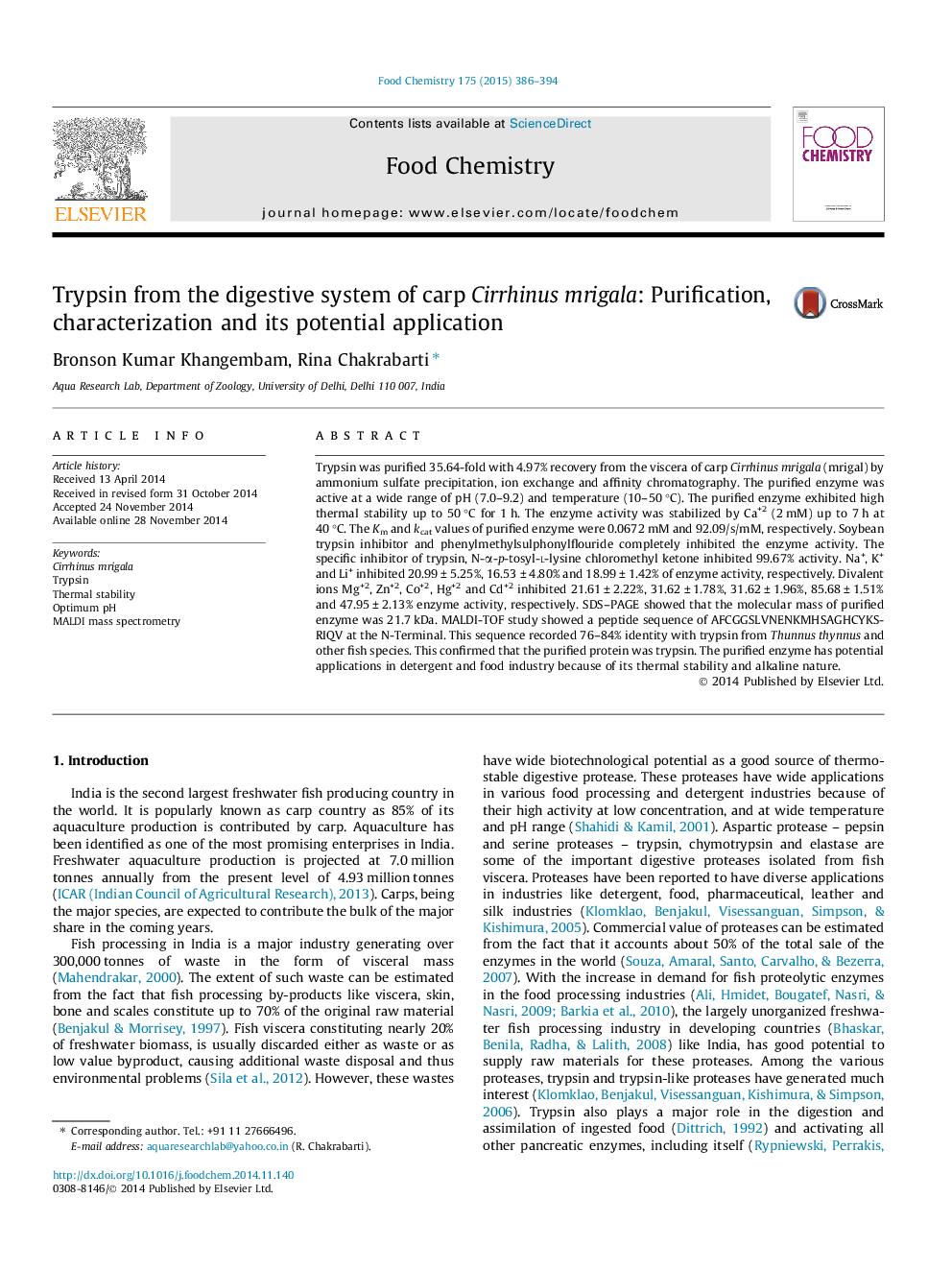| Article ID | Journal | Published Year | Pages | File Type |
|---|---|---|---|---|
| 7593600 | Food Chemistry | 2015 | 9 Pages |
Abstract
Trypsin was purified 35.64-fold with 4.97% recovery from the viscera of carp Cirrhinus mrigala (mrigal) by ammonium sulfate precipitation, ion exchange and affinity chromatography. The purified enzyme was active at a wide range of pH (7.0-9.2) and temperature (10-50 °C). The purified enzyme exhibited high thermal stability up to 50 °C for 1 h. The enzyme activity was stabilized by Ca+2 (2 mM) up to 7 h at 40 °C. The Km and kcat values of purified enzyme were 0.0672 mM and 92.09/s/mM, respectively. Soybean trypsin inhibitor and phenylmethylsulphonylflouride completely inhibited the enzyme activity. The specific inhibitor of trypsin, N-α-p-tosyl-l-lysine chloromethyl ketone inhibited 99.67% activity. Na+, K+ and Li+ inhibited 20.99 ± 5.25%, 16.53 ± 4.80% and 18.99 ± 1.42% of enzyme activity, respectively. Divalent ions Mg+2, Zn+2, Co+2, Hg+2 and Cd+2 inhibited 21.61 ± 2.22%, 31.62 ± 1.78%, 31.62 ± 1.96%, 85.68 ± 1.51% and 47.95 ± 2.13% enzyme activity, respectively. SDS-PAGE showed that the molecular mass of purified enzyme was 21.7 kDa. MALDI-TOF study showed a peptide sequence of AFCGGSLVNENKMHSAGHCYKSRIQV at the N-Terminal. This sequence recorded 76-84% identity with trypsin from Thunnus thynnus and other fish species. This confirmed that the purified protein was trypsin. The purified enzyme has potential applications in detergent and food industry because of its thermal stability and alkaline nature.
Related Topics
Physical Sciences and Engineering
Chemistry
Analytical Chemistry
Authors
Bronson Kumar Khangembam, Rina Chakrabarti,
